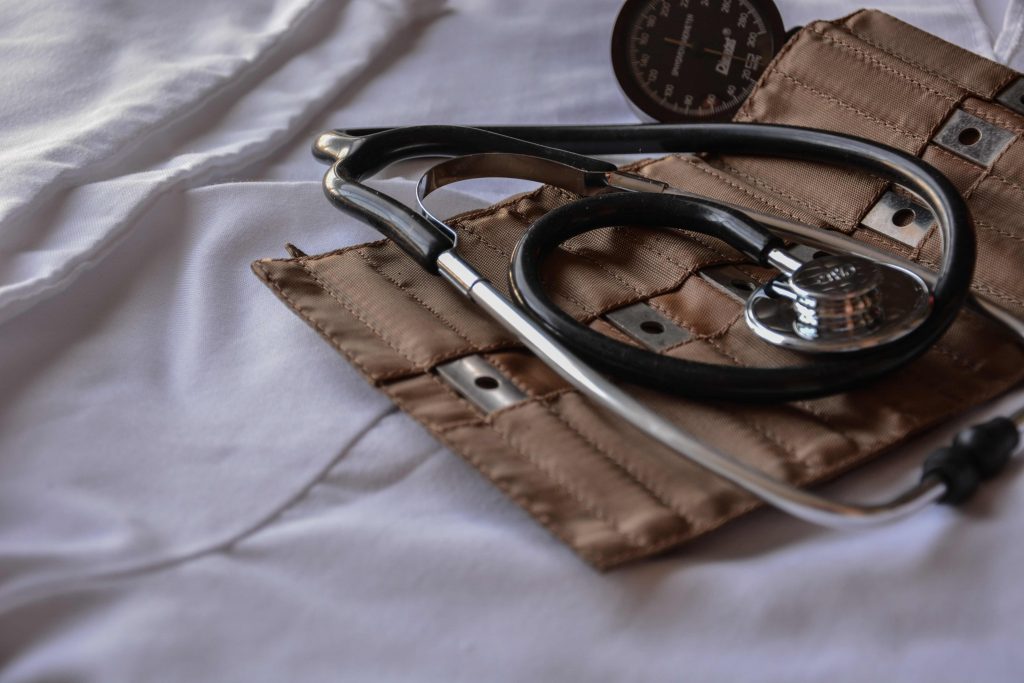By Michael Lynch, Associate, Global Healthcare Practice
While the country continues to grapple with a global pandemic, civil unrest due to social injustice, as well as a polarizing presidential election – healthcare organizations and companies are being tasked with figuring out how to engage the Black community.
Racism is so ingrained in our healthcare system that several leading organizations, including The American Academy of Pediatrics, American Medical Association and American College of Physicians, have declared racism as a public health issue. Per the Centers for Disease Control and Prevention, Black Americans are more likely to have chronic health conditions and race continues to impact our health outcomes.
Navigating the healthcare system as a Black, queer man has come with its own unique set of challenges. While there is no hiding being a Black man, I was not always confident in my sexual orientation. When I was younger I did not feel comfortable disclosing this information to my healthcare provider out of fear of discrimination, so I did not receive the health education I needed until my early twenties.
Stories like mine are exactly why healthcare organizations and companies cannot take a one-size-fits-all approach when interacting with diverse communities. The fact of the matter is that America is not a “melting pot” and as healthcare communicators, we have an obligation to:
- Flag to our clients that we should be acknowledging and incorporating the profoundly diverse markets in our strategy and execution regardless of whether they index high in the target demographic.
- Actively leverage research findings to create tangible, measurable solutions aimed at improving the quality of healthcare Black people receive.
- Recognize the fact that America is not a melting pot and its demographic makeup is seeing significant shifts. In 2019 the United States Census Bureau estimated that the Black community represented 13.4% of the country’s population and the LatinX/Hispanic community represented 18.5%. For context, in 1980, white Americans were 80% of the total population. Times are changing people.
The myriad of reasons why the Black community lacks trust in the healthcare system has been discussed ad nauseum and came bubbling to the surface when we learned that COVID-19 was disproportionately impacting the Black community in America. More recently, we saw the lack of trust on display when leadership at two historically Black universities, Dillard University and Xavier University in Louisiana, encouraged their students to participate in a local COVID-19 vaccine study.
The university presidents sent an email to their students asking them to consider participating in the vaccine study, citing that Black people are historically underrepresented in clinical trials and the only way to know how medications work on groups other than white people is by diversifying the trial pool. Still, some students, parents, alumni, and other community stakeholders quickly criticized the presidents for even suggesting the idea that their students participate. In their rebuke, they referenced the Tuskegee Syphilis Experiment (funded by the United States Public Health Service) as a recent memory as to why they have little faith in the safety and efficacy of the study. Additionally, they noted that presidents of elite, predominantly white colleges and universities were not volunteering their students to participate in similar studies whereas historically Black colleges and universities are being targeted.
Do you see the dilemma? Both sides have valid points which leaves us with the question: how can healthcare organizations and companies build trust with the Black and queer communities while not minimizing or downplaying their reasons to mistrust in the first place?
- Listen to Understand and Not to Respond
- Biases held by healthcare providers towards Black people negatively impacts the quality of healthcare in which they receive. A recent study found that individuals with at least some medical training hold and may use false beliefs about biological differences between Blacks and whites to inform medical judgments, which may contribute to racial disparities in pain assessment and treatment. Therefore, it is critically important for healthcare companies and organizations to address their implicit and explicit biases so that they can eradicate the systems that allow these biases to exist. Failure to do this could heighten the Black community’s preexisting concerns about whether their healthcare provider has their best interests at heart.
- Start Local and Meet Them Where They Are
- According to the Pew Research Center, 60% of Black Americans prefer getting their news from TV and one-in-three trust information they receive from local news organization. Moreover, per Nielsen in 2018, 90% of Black Americans live in a household that owns a smartphone, 28% of Twitter’s 67 million users are Black American and 20% of all Black Americans are on or self-identify using Black Twitter. Podcasts also saw a 70% growth in engagement (from 2.12 million to 3.60 million) from 2014 to 2017. With that, it is imperative for healthcare companies and organizations to leverage community management and social listening tools to identify who are the thought leaders within the community and learn the different nuances in order to build rapport.
- Recognize Black People Belong to Other Groups (Queer, Gender, etc.)
- The Black community is diverse and is not a monolith. While Black people share being Black as a commonality with one another, their experiences differ when one factors in gender, sexual orientation, socioeconomic status, education level, etc. For example, I am a college-educated, able-bodied, Black queer man. While I experience racism and discrimination based on my race and sexual orientation, I do not experience sexism, misogynoir, or transphobia because I am a cisgender man. With this in mind, it is important to acknowledge that Black people have other identities than just being Black and there is no one “Black experience.” More specifically, healthcare companies and organizations should help identify and promote resources, such as health practitioners that have expertise in areas that cater to the Black community while also recognizing that they can contribute more than just multicultural expertise. This could assist non-Black owned healthcare companies and organizations who wish to establish a rapport with the Black community build trust in a genuine and authentic way.
Healthcare communicators have an opportunity to reimagine and reinvent how healthcare companies and organizations engage with the Black community. Through active listening, utilizing our digital tools and capabilities, as well as ensuring that initiatives are being backed with financial and human resources – we can move from lip service to actionable, tangible change.
So, you shared the Black Lives Matter flag on the company’s LinkedIn, posted the Black square on Instagram and signed up for the “make me feel good” book club. Now what? Now, you apply what you learned. It may be challenging and sometimes uncomfortable. You might mess up. You may say the wrong thing. Take accountability, dust yourself off and get back on the horse and try to do better next time.
Quitting is not an option because lives are depending on it. Literally.
Academic References
- Atske, S., Barthel, M., Stocking, G., & Tamir, C. (2020, July 28). 7 facts about black Americans and the news media. Retrieved September 22, 2020, from https://www.pewresearch.org/fact-tank/2019/08/07/facts-about-black-americans-and-the-news-media/
- When the Rainbow is Not Enough: LGB+ Voices in the 2019 Black Census (Rep.). (n.d.). Retrieved September 22, 2020, from Black Futures Lab website: https://blackcensus.org/wp-content/uploads/2019/06/When-The-Rainbow-Is-Not-Enough.pdf
- Hoffman, K. M., Trawalter, S., Axt, J. R., & Oliver, M. N. (2016). Racial bias in pain assessment and treatment recommendations, and false beliefs about biological differences between blacks and whites. Proceedings of the National Academy of Sciences, 113(16), 4296-4301.
- (2018, September 13). Nielsen Examines The Digital Habits And Impact Of Black Consumers. Retrieved September 23, 2020, from https://www.prnewswire.com/news-releases/nielsen-examines-the-digital-habits-and-impact-of-black-consumers-300711998.html
- Chappell, T. F. (2020, July 29). How systemic racism affects public health Part 1: Health disparities among Black people (951664360 741911529 E. Ornberg, Ed.). Retrieved September 28, 2020, from https://www.walgreens.com/rx-healthanswer/health/p2/a/3200001/how-systemic-racism-affects-public-health-part-1-health-disparities-among-black-people/2449079?cjevent=7a29cbf3e3dd11ea802d00030a240612
- Vestal, C. (2020, June 15). Racism Is a Public Health Crisis, Say Cities and Counties. Retrieved September 28, 2020, from https://www.pewtrusts.org/en/research-and-analysis/blogs/stateline/2020/06/15/racism-is-a-public-health-crisis-say-cities-and-counties

